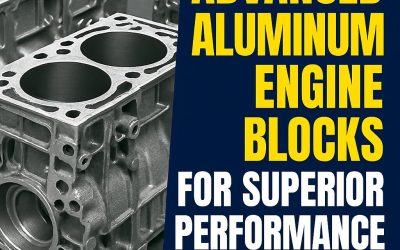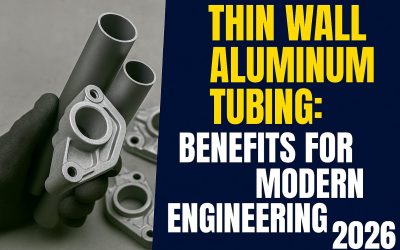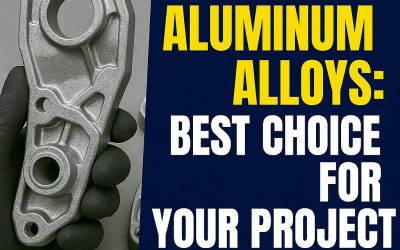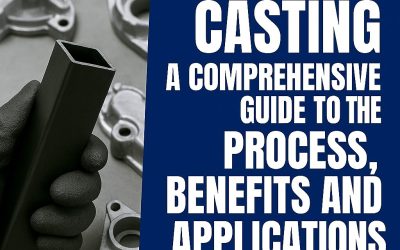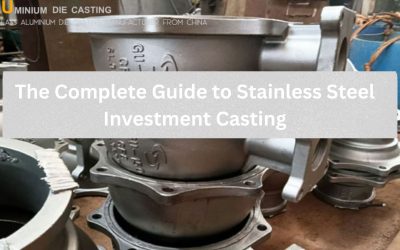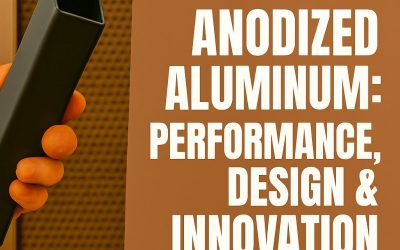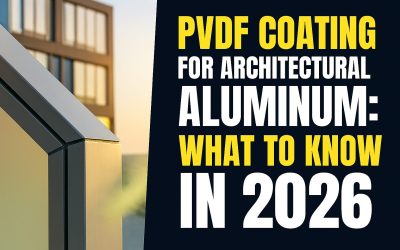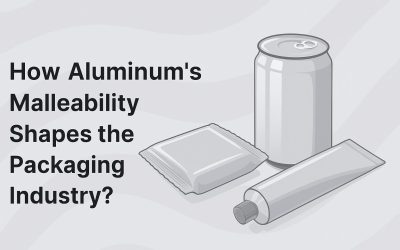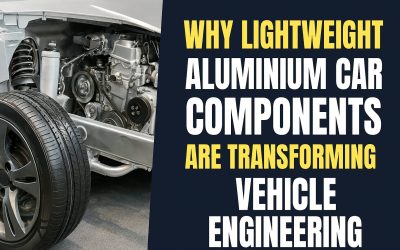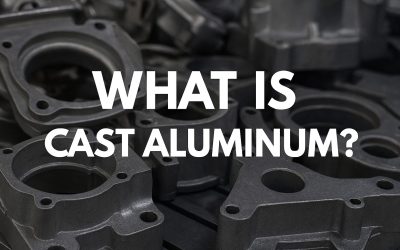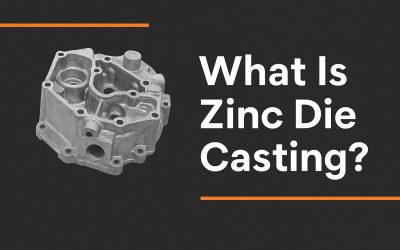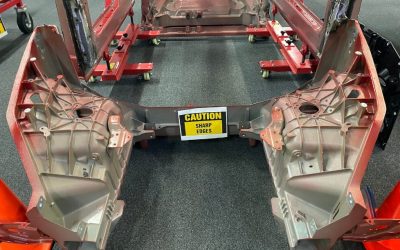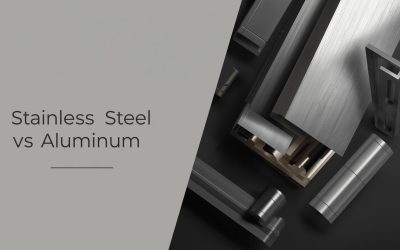Blocs moteur en aluminium avancé pour des performances supérieures 2026
Si les moteurs avaient une colonne vertébrale, le bloc moteur en serait l'épine dorsale. Et justement, dans l'industrie automobile actuelle à hautes performances, les blocs moteurs en aluminium deviennent rapidement la clé de l'innovation. En effet, que vous soyez un passionné d'engrenages, un ingénieur automobile...
Qu'est-ce que le moulage sous pression du laiton en 2026 ? Processus, utilisations et avantages
Vous avez probablement utilisé une poignée de porte en laiton brillant, tourné une vanne de plomberie, ou même remarqué des pièces métalliques finement finies : il est presque certain que vous avez rencontré le moulage sous pression du laiton, même si vous n'y avez jamais pensé. Le moulage sous pression du laiton est l'un des...
Avantages des tubes en aluminium à paroi mince pour l'ingénierie moderne en 2026
Les tubes en aluminium à paroi mince sont devenus un matériau de base pour l'ingénierie, la production et la conception industrielle du 21e siècle. En effet, la combinaison spéciale d'une structure légère, d'un rapport résistance/poids supérieur et d'une résistance à la corrosion impressionnante en fait un...
Alliages d'aluminium moulés sous pression : Le meilleur choix pour votre projet
Les alliages d'aluminium moulés sous pression sont essentiels dans le monde manufacturier actuel. Appliqués aux pièces automobiles et aux articles électroniques grand public, ces matériaux présentent une combinaison rare de résistance, de légèreté et d'économie. En d'autres termes, l'aluminium moulé sous pression...
Moulage sous pression : Un guide complet du processus, des avantages et des applications 2026
Avez-vous déjà réfléchi à la manière dont ces composants métalliques élaborés et compliqués du moteur de votre voiture ou du boîtier de votre téléphone sont fabriqués avec autant de précision ? En tant que personne ayant travaillé dans les tranchées de l'industrie manufacturière à faire fonctionner des lignes de production et...
Le guide complet du moulage à la cire perdue de l'acier inoxydable
Le moulage à la cire perdue de l'acier inoxydable est l'une des techniques de moulage des métaux les plus précises et les plus sûres, qui est également un type de procédé de moulage à la cire perdue. Elle permet de fabriquer des pièces de haute qualité avec des finitions détaillées et lisses. Le processus est typique dans...
Aluminium anodisé noir : Performance, design et innovation
L'aluminium anodisé noir est l'un des matériaux qui sont maintenant utilisés dans la sphère de production moderne, la construction et la conception de produits. Que ce soit sous la forme de téléphones intelligents lisses ou de l'architecture coûteuse des bâtiments, ses contributions sont difficiles...
Principaux composants de moteurs moulés sous pression renforçant la fiabilité des véhicules 2026
Imaginez que vous conduisiez votre voiture sur l'autoroute et que son fonctionnement soit plus souple, plus long et qu'elle puisse supporter les conditions les plus difficiles sans même transpirer. Telle est la magie de la production sophistiquée dans l'industrie automobile. Ayant travaillé dans le...
Qu'est-ce que l'aluminium anodisé ? Guide complet des procédés en 2026
Les produits en aluminium anodisé vous entourent partout. Qu'il s'agisse d'un smartphone élégant ou d'une architecture moderne, ou encore d'appareils médicaux et de pièces automobiles, l'aluminium anodisé est synonyme de durabilité, de beauté et de...
Revêtement PVDF pour l'aluminium architectural : Ce qu'il faut savoir en 2026
La liste des finitions durables de l'aluminium comprend généralement le PVDF, qui peut être imaginé par les architectes et les constructeurs. Et ce n'est vraiment pas une coïncidence. Cette nouvelle technologie de revêtement est devenue la norme pour l'aluminium architectural, qui est utilisé dans les façades,...
L'aluminium peut-il être recouvert d'une couche de poudre ? Est-ce la meilleure finition pour votre produit ?
L'aluminium peut-il être recouvert d'un revêtement en poudre ? Oui, l'aluminium peut être recouvert d'un revêtement en poudre. Le thermolaquage est également l'un des procédés de finition des surfaces métalliques les plus fiables et les plus attrayants. Cependant, lorsqu'il s'agit de l'aluminium, de nombreuses questions se posent encore, en particulier...
Composants de la quincaillerie du loquet de porte : Guide ultime
Les portes dépourvues de charnières, de loquets ou de serrures ne peuvent pas fonctionner correctement. Chaque porte a besoin de pièces solides et fiables pour s'ouvrir, se fermer ou rester sécurisée. Dans ce cas, les composants de la quincaillerie de porte jouent un rôle crucial. Leur principale fonction est de soutenir, de guider le mouvement et d'aider à...
Comment la malléabilité de l'aluminium façonne l'industrie de l'emballage
L'aluminium est omniprésent, que ce soit sous la forme d'une carte de soda, d'une feuille d'aluminium ou d'un blister pharmaceutique. Mais vous êtes-vous déjà demandé pourquoi l'aluminium est une telle superstar dans le monde de l'emballage ? La malléabilité est l'un de ses plus grands super-pouvoirs. C'est...
Choisir la bonne entreprise de moulage sous pression d'aluminium en Malaisie pour votre entreprise
En matière de production, il est important de trouver un fabricant de confiance pour le moulage sous pression de l'aluminium en Malaisie. Les différentes industries s'appuient sur un moulage sous pression de haute qualité pour produire des pièces précises et robustes. La sélection du partenaire approprié peut être...
Pourquoi les composants automobiles légers en aluminium transforment-ils l'ingénierie automobile ?
Les composants automobiles légers en aluminium apparaissent déjà comme une marque de fabrique dans la conception de la nouvelle génération. Au cours des dix premières années de son utilisation courante, l'aluminium est devenu bien plus qu'un produit de substitution. Il constitue désormais le principe fondamental de...
Le guide complet de la fonte d'aluminium décorative dans l'architecture moderne
La décoration métallique, quant à elle, s'est considérablement développée au cours des dernières décennies, et l'aluminium est l'un des matériaux-outils les plus inventifs et les plus polyvalents de la sphère du design. L'émergence de la fonte d'aluminium dite décorative a transformé la façon dont les architectes,...
Qu'est-ce que la fonte d'aluminium ? Ce qu'il faut savoir
La fonte d'aluminium est l'aluminium qui a été fondu puis coulé dans un moule pour lui donner la forme souhaitée. Cette opération permet aux fabricants de créer des composants plus avancés, d'où l'apparition de la fonte d'aluminium dans la plupart des industries contemporaines telles que les...
Qu'est-ce que la coulée sous pression du zinc ?
Le moulage sous pression du zinc est une méthode de fabrication qui consiste à soumettre l'alliage de zinc en fusion à une pression élevée, ce qui force l'alliage de zinc à entrer dans un moule en acier. Le résultat ? Des pièces métalliques puissantes, précises et robustes qui trouvent des applications dans différentes industries. Lorsque vous...
Où puis-je trouver des fournisseurs de pièces automobiles en aluminium moulé sous pression de haute qualité ?
Les pièces automobiles en aluminium moulé sous pression sont des composants importants pour les constructeurs automobiles. De nombreux clients de niveau 1 recherchent les meilleurs fournisseurs de pièces automobiles en aluminium moulé sous pression de haute qualité. Ainsi, les pièces automobiles contemporaines en aluminium moulé sous pression évoluent à un rythme...
Acier inoxydable ou aluminium : comment faire le meilleur choix pour la conception de votre produit
Le choix du matériau approprié est l'une des plus grandes décisions que vous aurez à prendre lors de la conception d'un produit. Qu'il s'agisse de la construction d'appareils électroménagers, de pièces automobiles ou d'appareils électroniques grand public, la guerre entre l'acier inoxydable et l'aluminium se résume...
Moulages agricoles pour des outils agricoles efficaces
Le fabricant de pièces moulées pour l'agriculture est une entreprise qui fournit des pièces de qualité aux machines agricoles. Les machines agricoles nécessitent des composants métalliques robustes. Ces composants sont soumis à de lourdes charges, à la saleté et à un sol rugueux. C'est la raison pour laquelle de nombreuses exploitations agricoles...

